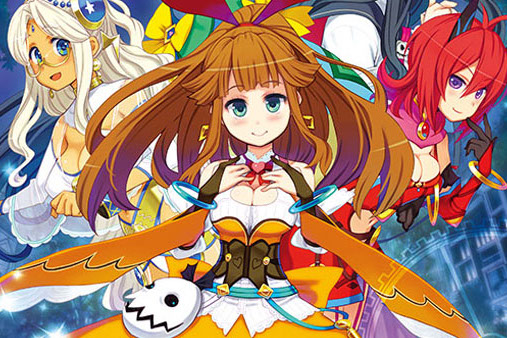News by Matt S.
So, Australia’s delightful censorship bureau, the Classification Board, has struck again, and once again it has struck a tiny Japanese game that was not going to offend anyone.
This time around it is Idea Factory’s MeiQ: Labyrinth of Death; that has been refused classification (the dreaded RC rating), and in Australia, that means the game is effectively banned. You’re not allowed to import or sell the game, and that means it won’t be available on the PlayStation Vita – the console it was developed for – in any format locally.
The game was refused classification for “matters of sex, drug misuse or addiction, crime, cruelty, violence or revolting or abhorrent phenomena in such a way that they offend against the standards of morality, decency and propriety generally accepted by reasonable adults” – basically the standard kind of nonsense that the delicate sensibilities of the members of the board tend to be uncomfortable with. As usual it reflects a complete double standard on the part of the utterly incompetent and ideologically driven board; a few weeks after the extreme bloodletting of Doom was deemed to be wholesome entertainment and/ or culturally appropriate for Australian adults, it seems that those same adults need to be protected from the sight of anime girls with their kits off.
This happens over, and over again. Games from Japan are subject to either far stricter ratings processes for having the audacity to be, clearly, games from Japan, or else they’re banned entirely. Meanwhile, western game developers are able to be as extreme with the content as they like, and get a free pass with games only rarely falling under any real scrutiny. Frankly I’d almost be willing to argue that the eagerness for the Board to overreact to Japanese content verges on racism, it is that fervent in singling out games from the country.
I’ve been critical of the Classification Board in the past, and, frankly, I’m sick of Australia’s mainstream games media and community not making a far bigger deal of this. I don’t care whether this game interested you or not: this is what actual censorship looks like. It’s not a developer deciding to change their game for release in the local market. It’s not a translation of text that you may or may not agree with. It’s not even a single retailer deciding not to sell a game (that is available at other outlets). Actual censorship is the systematic prevention of anyone being able to access an artistic artefact, by a government-run agency.
It’s not acceptable, under any circumstances, and there is no justification to prevent adults for determining for themselves if they are comfortable with the content in an artistic artefact or not. Australia’s games industry has proven that it can band together to pressure the government into righting a wrong; when a lack of an R18+ Adults Only game rating was determined to be a wrong (rightfully), we were able to campaign to drive through an R18+ rating. So, how the community can sit by and allow actual censorship to fly concerns me greatly.
In theory, Idea Factory could alter the content to remove the particularly offending material, and resubmit the game to the Classification Board for a re-review, and that could see the game released locally after all. But this is an expensive process, both from a development point of view, and the obscene rates the Board charges for the privilege of reviewing a game. For a country with the small population like Australia, and on a platform like the PlayStation Vita, that’s just not going to happen, and it’s just not worth Idea Factory’s time or investment.
This could make publishers like Idea Factory more hesitant to submit their games for review in the future, too. So, sorry, Australia, it looks like you miss out, and if you had any sense you would be doing something about that.
– Matt S.
Editor-in-Chief
Find me on Twitter: @digitallydownld







